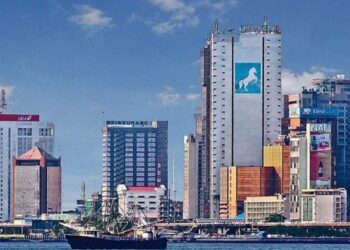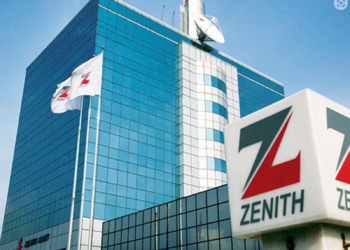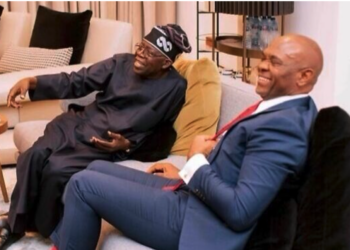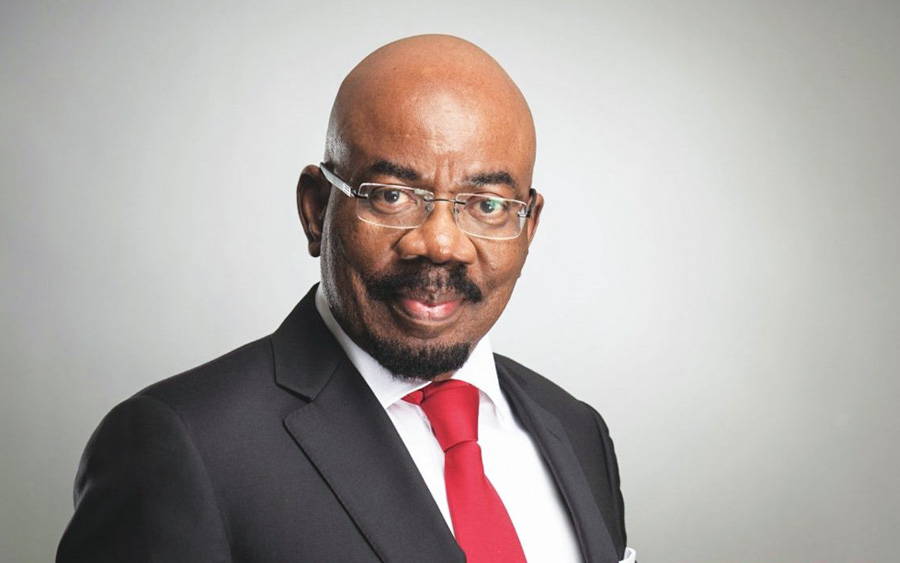It is no longer news that a Federal High Court sitting in Ikoyi, Lagos, recently granted a Mareva injunction restraining Shebah Exploration and Production Company Limited (Shebah E&P), Shebah Petroleum Development Company Limited, and the co-founder and Chairman of Seplat Energy Plc., Dr. ABC Orjiako, from withdrawing from the accounts of nine other defendants and 29 banks. The interim order was made by Justice Yellin Bogoro made the interim order on Friday while granting an ex parte Mareva application applied for by Zenith Bank Plc. through its counsel, Mr Kemi Balogun (SAN), in the case of an alleged $78.4 million debt.
What is worrying to analysts is what they describe as deliberate mischief, smear campaign, and misrepresentation of facts and the person of Dr. ABC Orjiako. They equally fear this development could hold far-reaching implications for international investors closely watching the matter.
They are quick to refer to an analysis authored by one Bayo Akinloye. Among others, he wrote: “Huge non-performing loans erode confidence and threaten the continued existence of a financial institution. That is why recalcitrant debtors such as Orjiako, who are in the habit of moving from one bank to another, with a deliberate plan not to repay, must be prevented from destroying the financial system.
Just like Access Bank, it was gathered that Zenith Bank has vowed to take every step within the ambit (sic) of law to recover this huge amount of debt”.
However, in stack opposite of the assertion, findings show that Dr. Orjiako had actually paid a total of $143.3million to the consortiums for the loans he guaranteed.
Furthermore, although these publications try to present the Shebah dispute with a consortium of banks as a fresh matter and Dr. Orjiako as the debtor, findings show that until the recent suit instituted by Zenith bank last October, the matter has actually been ongoing since 2014, starting from London to Nigerian courts. It is in relation to loan facilities taken by Shebah E&P to carry out drilling campaign in OML 108 an inconclusive drilling campaign in Ukpokiti oil field, offshore of the Niger Delta.
Another striking finding is that Dr. Orjiako was never the borrower. Neither did he utilise the said facilities as a person, as the banks disbursed the said loan directly to the service providers of Shebah. Instead, he was merely the majority shareholder of Shebah and guarantor of the facilities. He was not even a member of the management of Shebah, but only stepped up to salvage the company by making payments to the banks, using his personal and family assets to try to liquidate the loan facilities as a guarantor.
Origin and facts of the matter
Findings and documents sighted, show that the matter began in 2012 when Shebah E&P obtained a $150 million loan facility from a consortium of banks (AFREXIM/Diamond- now Access/Skye- now Polaris) led by AFREXIM for work over and drilling campaign at the said Ukpokiti field (oml 108) operated by Shebah E&P.
Shebah drilled a successful horizontal well, the first of its kind in the offshore Niger Delta and tested 4,000 barrels per day of oil and condensate production, but encountered large gas reserves. The company then decided to find a solution to the huge associated gas based on professional oil field best practices before continuing with the oil/condensate production. The company required more funds to commercialise the gas to avoid excessive flaring while producing the discovered oil.
However, the consortium of lenders led by AFREXIM could not provide further loan facilities to Shebah to conclude the operations, hence Zenith Bank approached Shebah in 2014, appraised the situation, and decided to provide a $250 million loan facility fully approved by its Board to salvage the situation.
It is also instructive that Zenith Bank proposed to pay the consortium of banks $50 million to reduce their collective exposure, enhance the facility to $350 million, provide Shebah with additional funds to monetize the gas, and produce the discovered oil. The enhanced facility would have had Zenith join and lead the syndicate with $250 million, while the consortium of existing lenders would have reduced their exposure and stay at $100 million (about $33m each).
In addition, Zenith Bank requested, based on Shebah’s need, to have a 9-month moratorium to conclude the projects and extend the facility tenure to five years. This was in order to spread the cash flow and enable easy repayment of the enhanced facility.
An insider however explained that the AFREXIM-led consortium rejected surprisingly rejected the $50 million offered by Zenith Bank. They rejected Zenith Bank’s leadership of the syndicate and were unwilling to extend the tenure of the facility, which was remaining about two and half years as at the time Zenith Bank made the offer.
Preparatory to monetising the discovered gas, Shebah negotiated and executed a Gas Sales and Purchase Agreement (GSPA) of $2.5billion for 20 years of gas sale on a take or pay basis with the Nigerian Gas Company (NGC) as the gas offtaker, supported by a payment bank guarantee in the sum of $70m from Zenith Bank.
However, the AFREXIM consortium rejected all the efforts being made by Shebah and proceeded to file an action to call the facility in 2014, which was just two years after final drawdown of the facility. The call of the facility ahead of the maturity naturally triggered the default on the loan.
Documents obtained in the course of the investigation showed that on February 19, 2016, Mr Justice Phillips of the London High Court, delivered a judgement in favour of the AFREXIM consortium for the repayment of the $150 million facility. The judgement creditors registered the judgement in Federal High Court in Lagos and applied for enforcement of the judgement.
However, the defendants, Shebah, immediately opposed the registration and the enforcement of the judgement based on their convictions on rule of law and on the fact that they would like to negotiate an out-of-court settlement and pay back the loan under a restructured arrangement. This case is still life before an Honorable Justice of the Federal High Court Lagos as the court awaits the outcome on the settlement, which will be entered as consent judgement.
But contrary to the Syndication agreement by the AFREXIM consortium, Polaris bank transferred its share of the judgement facility to the Asset Management Corporation of Nigeria, AMCON. Notwithstanding the unilateral action by Polaris Bank, AMCON initiated a fresh action in Federal High Court Abuja, not minding that the same case had already got a ruling in London and subject to a contested enforcement proceedings in the Federal High Court Lagos. It was by this case that AMCON filed an Ex-Parte order granted and widely reported in 2019.
Good faith
Meanwhile, contrary to the narratives that put Dr. Orjiako in the class of recalcitrant debtors, documents sighted show that he paid $89.3 million out of a total Principal of $150 million to the consortium of AMCON/AFREXIM/ACCESS toward the repayment efforts of the loan he guaranteed. This includes the sum of $20 million he paid this year. Consequently, it means that if his proposal is accepted by these creditors, the outstanding Principal amount would be $60.7 million.
The orthopaedic surgeon turned businessman had equally made a proposal to these creditors to accommodate Zenith Bank in the distribution of the repayment, but they have not accepted this proposal. Had they acceded, the Zenith Bank action of last October would have been prevented.
Nevertheless, in the case of Zenith Bank, Dr. ABC Orjiako has also paid back the sum of $54 million out of a Principal of $70 million. This payment includes proceeds of forced sale of his family Seplat shares by Zenith bank. He is also currently engaging the bank to negotiate an out-of-court settlement.
In all, he has paid a total of $143.3 million (that is $89.3 million plus $54 million). Analysts see these payments as a clear show of high moral duty and rectitude on Dr Orjiako’s part to repay a loan he did not personally utilise and for oil assets that are not generating any revenues.
Very reliable insider sources also confided that the parties may be considering an out-of-court settlement of the commercial dispute and a positive outcome of such a settlement would bring the entire legal impasse to a final close.
The Seplat connection
Meanwhile, findings further show that Seplat Energy where Dr. Orjiako is the Chairman is not involved in any of these matters in whatsoever manner. The Seplat Board of Directors, being very strong in corporate governance, had actually activated all governance and compliance processes and procedures to ensure that the company does not breach any aspect of regulatory compliance or its governance policies.
Likewise, it was revealed that contrary to the story in the public space, the recent resignation of Mr. Xavier Rolet as an Independent Non-Executive Director of the company had nothing to do with the recent suit by Zenith Bank and the resultant Marvera injunction.
“This matter regarding Shebah dates back to 2014. So, it is laughable for anyone to relate to Rolet’s resignation to it as he had indicated his decision to resign from the Board for personal reasons several months ago”, an authoritative source familiar with the developments stated.
The insider source equally described as mischief the attempt to play up in the media the legal tussle between Access Bank and Seplat/Orjiako in the wake of recent court case instituted by Zenith, describing it as part of the orchestrated campaign to tarnish Orjiako.
“That matter is purely a loan deal gone awry between Access Bank and Cardinal Drilling Ltd. Cardinal Drilling obtained credit facilities from Diamond Bank (now Access Bank) to procure four drilling rigs between 2012 and 2014. The loan was secured with Deeds of Fixed Debenture tied to Cardinal Drilling’s assets, namely the four specific rigs. So, it beats every legal principle and common sense that Access Bank decided to sue Seplat and Orjiako, who had absolutely nothing to do with the loan facility either as a taker or guarantor. Little wonder the Court of Appeal deservedly set aside the injunction Access Bank obtained from the lower court”, the source explained.
Against these backdrops, Nigerians and the international investment community watching the drama would want to ask: Is Dr. ABC Orjiako really the kind of businessman his traducers want the world to believe he is? Emerging facts point in the opposite direction.
Ikenna Peter is a business analyst. He writes from Abuja (Nigeria)


















